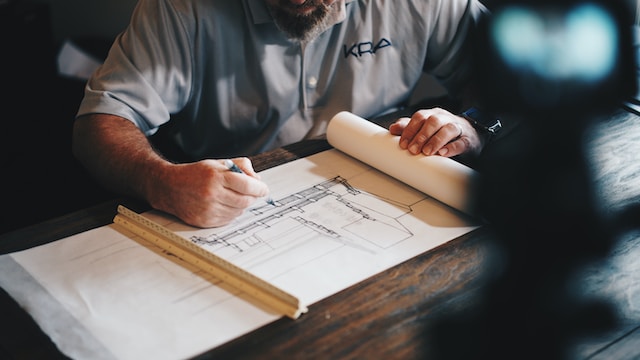Construction jobs range widely from installing driveways to building driveways, which means your firm needs an equally broad scope of tools and machinery. Choosing the best equipment for your job site involves several factors: durability, versatility, speed, and safety. These elements directly impact your crew’s ability to get work done on time and meet client expectations.
If your construction company is growing and needs more machinery, the following tips will ensure you choose wisely.
Familiarize Yourself with Construction Equipment Categories
Before you step into equipment showrooms at your local CAT or Kubota dealer, refamiliarize yourself with the different categories of machinery and tools within the construction industry.
Below is a quick overview of each and their purposes:
Heavy Machinery
Heavy machinery can be expensive whether you purchase outright or rent it as necessary for specific jobs. Equipment in this category includes tractors, backhoes, and bulldozers. You’ll find that their versatility will prove indispensable when it comes to demolition, excavation, and demolition.
Demolition Equipment
This is a broad category of machinery that aids with demolition. From saws to jackhammers and crushers, your construction crew needs these to deconstruct structures.
Excavators and Loaders
When it comes to digging up and removing dirt, concrete, brush, and more, loaders and excavators are essential to many early stages of construction. Depending on the task, these machines come in an assortment of sizes to choose from.
Breaker and Drill Hammers
If you’re in the paving business, count on needing a powerful drill or hammer to help break apart old pavement, pavers, and asphalt. These are also useful in found low profile hoppersation repair.
Cranes
While you may not need to purchase a crane or hoist, there will be times these are necessary to move around construction materials, unload supply trucks, and more.
Waste Management
Construction projects generate a lot of waste and debris, so it’s important to invest in receptacles like dumpsters and low profile hoppers to contain the mess. These are the perfect way to keep sites free of unwanted clutter and obstructions that cause workplace hazards.
Set a Budget for Equipment Rental and Purchases
While you may still need to learn what your next construction job will entail, you can prepare for a potential need for additional machinery rentals and purchase costs by setting a budget ahead of time. Then, once you have a contract, you can evaluate what tools are necessary and compare buying and leasing expenses. Having a predetermined budget will keep your focus grounded on what the job needs and avoid impulse buys.
Determine What Size Machinery Is Necessary
Understandably, you may need to put off a larger investment in a heavier piece of machinery. However, if you know it will take a little while to get a return on this investment, it might be a wise purchase in the long run. Owning is always cheaper than renting if you eventually get your money’s worth out of it.
Of course, if you plan only to take smaller construction projects where a smaller loader and excavator are enough, there isn’t a good reason to buy large equipment. Plus, bulldozers, cranes, and backhoes often require additional transportation considerations when getting them to your worksite. This can add further expense to your equipment budget if you need a way to move these machines on your own.
At the end of the day, when purchasing machinery, understanding your business demands is essential when making such an important investment.
Choose Heavy Machinery That’s Versatile
For many construction companies, having a fleet of bulldozers, excavators, backhoes, and cranes isn’t financially necessary. Instead, they choose equipment that can perform multiple tasks, like a backhoe-loader or excavator. Of course, specialized equipment will still be needed, but you can offset that cost by investing in multi-tasking machinery.
Consider Construction Materials
Another factor that can impact what construction equipment you’ll need is the materials used on the job site. For example, when demolishing a one-story building, your team will be moving soil, concrete, brick, wood, drywall, carpet, and a host of other materials. They will probably use a bulldozer, skid steer, or excavator. Now, should the building be a ten-floor office complex? Then, a crane, wrecking ball, material handlers, and larger equipment is necessary.
Determining the best equipment for any construction job will always require calculating the volume and type of material your machinery will move.
Evaluate Your Workers’ Skillsets
Just because you need a bulldozer doesn’t necessarily mean you have a qualified operator to use it. So when choosing equipment for your construction site, be sure you have someone certified to operate it. This might require subcontracting with workers who can if you still need to get someone available.
This tip is one of the most important because knowing your crew’s abilities is necessary to ensure they have the right tools for the job. Never assume what someone is qualified to do and verify before you start shopping.
Choose Equipment That is Easy to Fix
Any construction equipment and machinery you buy will endure significant stress while being operated. Breakdowns are a fact of life in this industry, but you can minimize repair delays by choosing quality tools that are durable and feature easily found spare parts.
If you are considering importing brand machinery, make sure there are authorized repair specialists in your area. The last thing you want is to blow a contract deadline because you’re waiting two weeks for a part to be shipped.
Construction Site Equipment Is a Crucial Investment
The construction equipment needed at your job site will depend on a variety of factors, but most importantly, the expertise and ability of your team to use them safely. Because heavy machinery is an expensive investment, take time to determine how long your return on investment will take and weigh that against short-term leasing costs. Purchasing a crane isn’t necessary since you aren’t building large high-rises.
Regardless of your equipment choices, the recommendations shared in this article will help you decide if a long-term investment is worthwhile for your job site.
Photo by Daniel McCullough on Unsplash



